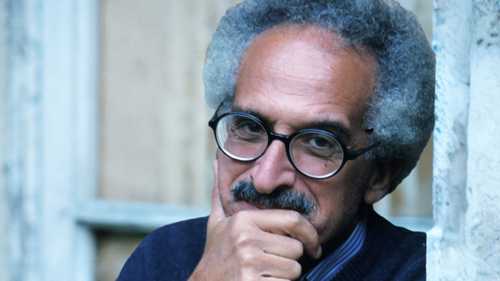The Egyptian novelist Sonallah Ibrahim passed away at the age of 88

This morning, Wednesday, August 13, the great Egyptian writer Sonallah Ibrahim passed away at the age of 88, after a career full of literary and critical creativity, leaving behind a significant cultural legacy that will remain present in the Arab literary scene.
The Egyptian Minister of Culture, Dr. Ahmed Fouad Henu, mourned him in an official statement, praising his pioneering role in Arabic literature, saying: "We have lost an exceptional literary figure who left behind an eternal human and literary legacy," adding that the deceased was "one of the pillars of contemporary Arab narrative, combining intellectual depth and commitment to the issues of the homeland and humanity."
The late writer had suffered a sudden health crisis in early May, after which he was transferred to Nasser Institute Hospital for treatment following a fracture in his right femur, which required urgent surgical intervention. President Abdel Fattah el-Sisi followed up on his health condition, and the Minister of Culture visited him several times to check on him.
Sonallah Ibrahim, born in 1937, was known for his distinctive style of blending politics with social analysis, addressing issues of Egyptian and Arab society with depth and sharp criticism in his works. Among his most famous novels is "Zaat," which was adapted into a successful television series titled "The Story of a Girl Named Zaat," along with other novels such as "Beirut Beirut," "Sharaf," and "The Committee," which are considered landmarks in modern Arabic literature.
The late writer received many prestigious literary awards, including the Ghaleb Halsa Prize from the Jordanian Writers Association, and the Best Egyptian Novel Award for his novel "Sharaf," in addition to the Ibn Rushd Prize for Freedom of Thought and the Cavafy Prize awarded to creators who contribute to enhancing cultural dialogue between Egypt and Greece.
It is worth noting that Sonallah Ibrahim was one of the most important literary voices that influenced successive generations of writers, leaving a clear mark on the Arab cultural scene with his bold and profound writings.